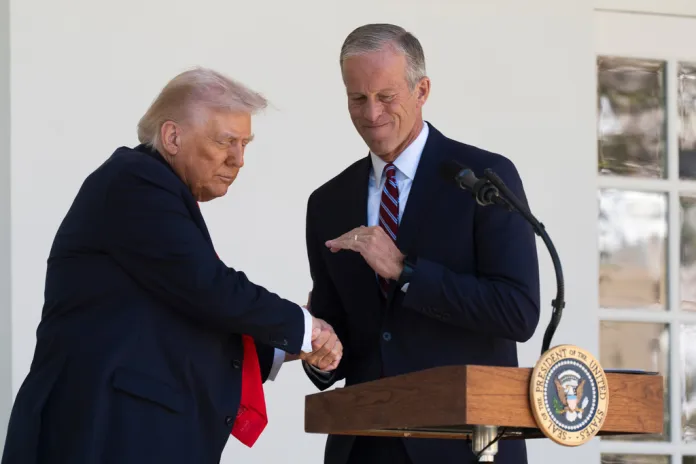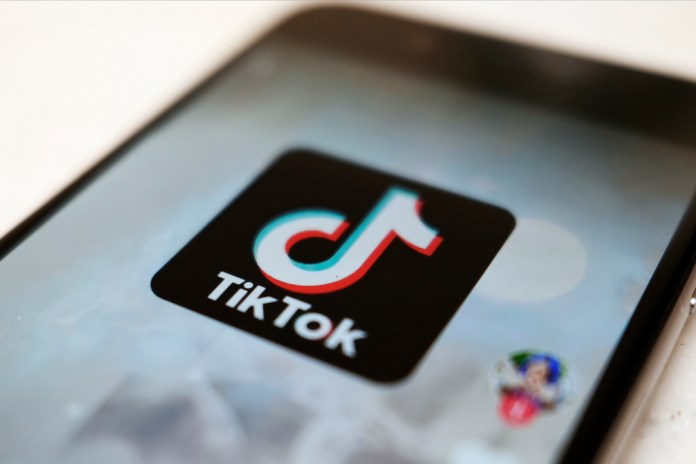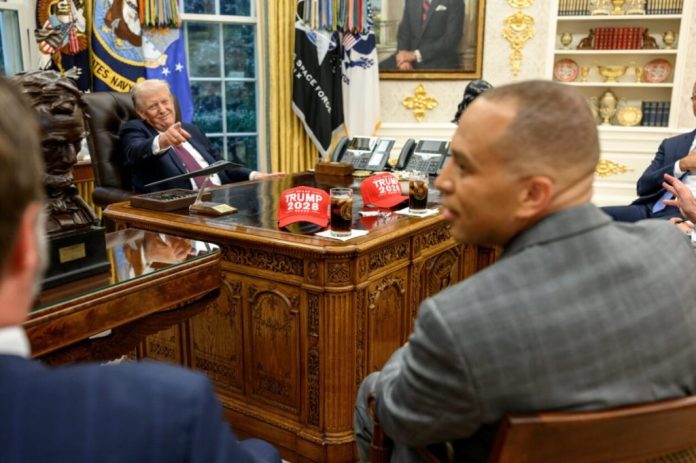Trump and Xi superpower summit: Here’s what’s at stake
The article discusses the upcoming high-stakes summit between U.S. President donald Trump and Chinese President xi Jinping, scheduled on the sidelines of the Asia-Pacific Economic Cooperation (APEC) summit in Busan, South Korea. This meeting marks their first in-person encounter during Trump’s second term and takes place amid ongoing tensions,including a bitter trade war characterized by high tariffs,competition over rare earth elements,and significant geopolitical issues such as Taiwan,Russia’s threat,and nuclear arms control.
the U.S. aims to secure tangible commitments from China on issues like fentanyl production and trafficking, export controls on rare earth elements, peaceful regional dialogues involving neighbors like Taiwan and japan, and the release of political prisoners. A trade deal framework is expected to address tariff concerns and U.S. agricultural exports,notably soybeans. The U.S. also hopes to finalize terms allowing TikTok to continue operating in the U.S. under American oversight, and Trump seeks China’s cooperation on nuclear arms control and Russian aggression in Ukraine.
From China’s outlook, the main goals include demanding the U.S. correct perceived policy errors, reduce tariffs to zero, stop arms sales to Taiwan, and cease criticism of the Chinese Communist Party.China values tariff relief and hopes for assurances that the U.S. will not strengthen alliances aimed at containing China.
Potential challenges include differing expectations,with Trump pushing for quick,visible victories and Xi perhaps offering vague concessions that allow room for delay or renegotiation. The enforcement of the previous Phase 1 trade deal remains a sticking point, and the scope and ambition of any new agreement remain unclear. Analysts caution that symbolic gestures may not translate into meaningful progress, notably given China’s dominant position in rare earth minerals and the complexities surrounding fentanyl enforcement. Success would stabilize U.S.-China relations temporarily, while failure could result in another inconclusive summit with little practical outcome.
Trump and Xi superpower summit: Here’s what’s at stake
President Donald Trump and Chinese President Xi Jinping are preparing for their first in-person meeting during Trump’s second administration, a high-stakes moment in the diplomatic battle for superpower supremacy.
Their sit-down on Thursday in Busan, South Korea, on the sidelines of this year’s Asia-Pacific Economic Cooperation leaders summit, comes as the United States and China are locked in a bitter trade war, with triple-digit tariff rates and a race for control over rare earth elements. That’s not to mention the Taiwan-sized elephant in the room, the Russian threat, and nuclear arms control.
What does the U.S. want?
Trump will sit down with Xi with specific deliverables in mind, including securing commitments from China regarding fentanyl production and trafficking, rare earth element export controls, and “peaceful dialogues” with China’s “nervous neighbors,” Taiwan, Japan, Vietnam, India, and the Philippines, in addition to the release of political prisons such as Jimmy Lai and recently arrested religious leaders, according to Hudson Institute China Center director Miles Yu.
That is not to mention the trade deal that Trump and his administration have previewed after this week’s meeting with Chinese counterparts in Malaysia.
Treasury Secretary Scott Bessent told CBS this week that Trump’s threat of 100% U.S. tariffs on Chinese imports into the U.S. from Nov. 1 in response to China’s rare earth export controls is “effectively off the table,” adding to ABC that a “substantial” trade deal “framework” should address concerns related to China’s boycott of U.S. soybeans.
China purchased more than half of the $24.5 billion in U.S. soybean exports last year, but has not bought any since May. As a result, some farmers are facing the prospect of bankruptcy, as the federal government has less capacity to provide financial assistance because of the historically long government shutdown.
During the 2018-2019 U.S.-China trade war of Trump’s first administration, farmers received $28 billion in assistance.
Bessent also said he expected China to postpone its rare earth export controls, which also include products made with Chinese rare earth minerals and production knowledge and technology, for a year.
Trump and Xi are poised to “consummate” a deal to allow TikTok to continue operating in the U.S., per the treasury secretary.
Last month, Trump announced that U.S. companies would control TikTok’s algorithm in the U.S. and that six Americans would be on the seven-member board for its U.S. operations as part of the deal.
For American Enterprise Institute U.S.-China fellow Ryan Fedasiuk, Trump wants “to prove he can strike deals where [former President Joe] Biden couldn’t” amid reports of China proposing to invest $1 trillion in the U.S. Trump is also hoping to discuss nuclear arms control with Xi, despite being against Chinese policy until its arsenal is on par with that of the U.S.
Trump is also seeking help from Xi with respect to Russian President Vladimir Putin’s war against Ukraine, given the pair’s “no limits” relationship, which includes defense cooperation, and China’s purchases of Russian oil, which is funding Russia’s part in the conflict.
What does China want?
Regarding China, “it’s always about demanding that the U.S. admits and corrects its wrongs on all aspects of U.S. policy toward China, abandon any criticism of the [Chinese Communist Party’s] regime, stop arms sales to Taiwan, and reduce U.S. tariffs on China to zero,” according to Yu, of the Hudson Institute and former Secretary of State Mike Pompeo’s China policy adviser during Trump’s first administration.
AEI’s Fedasiuk agreed, adding for Xi, “the goal is tariff relief and a public signal that Trump won’t box him in with reinvigorated alliances in Asia.”
The two countries agreed in August to delay U.S. tariffs of 145% on Chinese imports and Chinese tariffs of 125% on U.S. imports until Nov. 10, though 20% U.S. tariffs on Chinese products remain in place because of China’s perceived lack of action as a major source of precursor fentanyl chemicals that perpetuate the opioid crisis in the U.S.
On Tuesday, The Wall Street Journal reported that Trump may reduce those fentanyl-related tariffs. The outlet also reported this month that China was also seeking concessions from Trump concerning Taiwan, hoping the U.S. would oppose Taiwanese independence as opposed to U.S. policy, which is not to support the island’s independence.
For Fedasiuk, “the best-case outcome is a narrow deal that likely involves resuming the flow of rare earth elements, cracking down on fentanyl traffickers, and continuing operations of TikTok U.S., things both sides can sell domestically as ‘wins.’”
“Trump wants deliverables he can point to; Xi wants a broader U.S. climb-down on tariffs and tech controls,” Fedasiuk told the Washington Examiner. “Both will frame the meeting as stabilizing, but it’s more a tactical pause than a strategic thaw.”
What could go wrong?
Trump “wants to claim a quick and beautiful victory” with a trade deal with China, whereas Xi “might concede something grand but vague, leaving ample space and loopholes for later negotiation and foot-dragging, which the CCP always does,” according to Hudson Institute’s Yu.
“A week or so ago, President Trump added Phase 1 trade deal enforcement to the negotiation table, which will likely be a sticking point because China has never implemented most of it,” Yu told the Washington Examiner, referring to the U.S.-China trade deal agreed to during Trump’s first term.
Under that deal, reached in January 2020, China agreed to purchase at least an additional $200 billion in U.S. goods and services over two years, strengthen intellectual property protections, and counter forced technology transfers.
To that end, Heritage Foundation Asia Studies Center China and Indo-Pacific policy adviser Yuichiro Kakutani underscored that the 2024 trade deal framework is “unclear” regarding whether it will resolve “all trade and economic issues between the two countries.”
“One thing to look out for is whether President Trump will announce a comprehensive deal with China, or a less ambitious agreement to build momentum for a wider deal with Beijing in the next few months,” Kakutani told the Washington Examiner. “The agreement will be a success if President Trump can force Beijing to withdraw the export controls.”
Trump’s negotiating strategy has further complicated the trade deal. The president prefers to connect different areas of interest, unlike his predecessors, who preferred to keep economics and security separate, including Taiwan, Russia, and even fentanyl.
But Fedasiuk had a more general warning concerning “the risk” for Trump if he were to “mistake Xi’s symbolic ‘goodwill’ for substance.”
For instance, Xi expressed more confidence in China’s negotiating position, particularly because of its monopoly on rare earth minerals.
TRUMP REVVING MAGA BASE WITH THIRD-TERM TROLLING, ANALYSTS SAY
“Beijing can promise not to weaponize rare earths, but both sides know such an agreement would be worth the paper it’s printed on,” Fedasiuk said. “Likewise, crackdowns on fentanyl precursors mean little without consistent financial compliance by Chinese banks.”
Fedasiuk added: “Success will allow both countries to manage friction headed into the holiday season; failure will look like another photo-op summit that solves nothing.”
" Conservative News Daily does not always share or support the views and opinions expressed here; they are just those of the writer."




